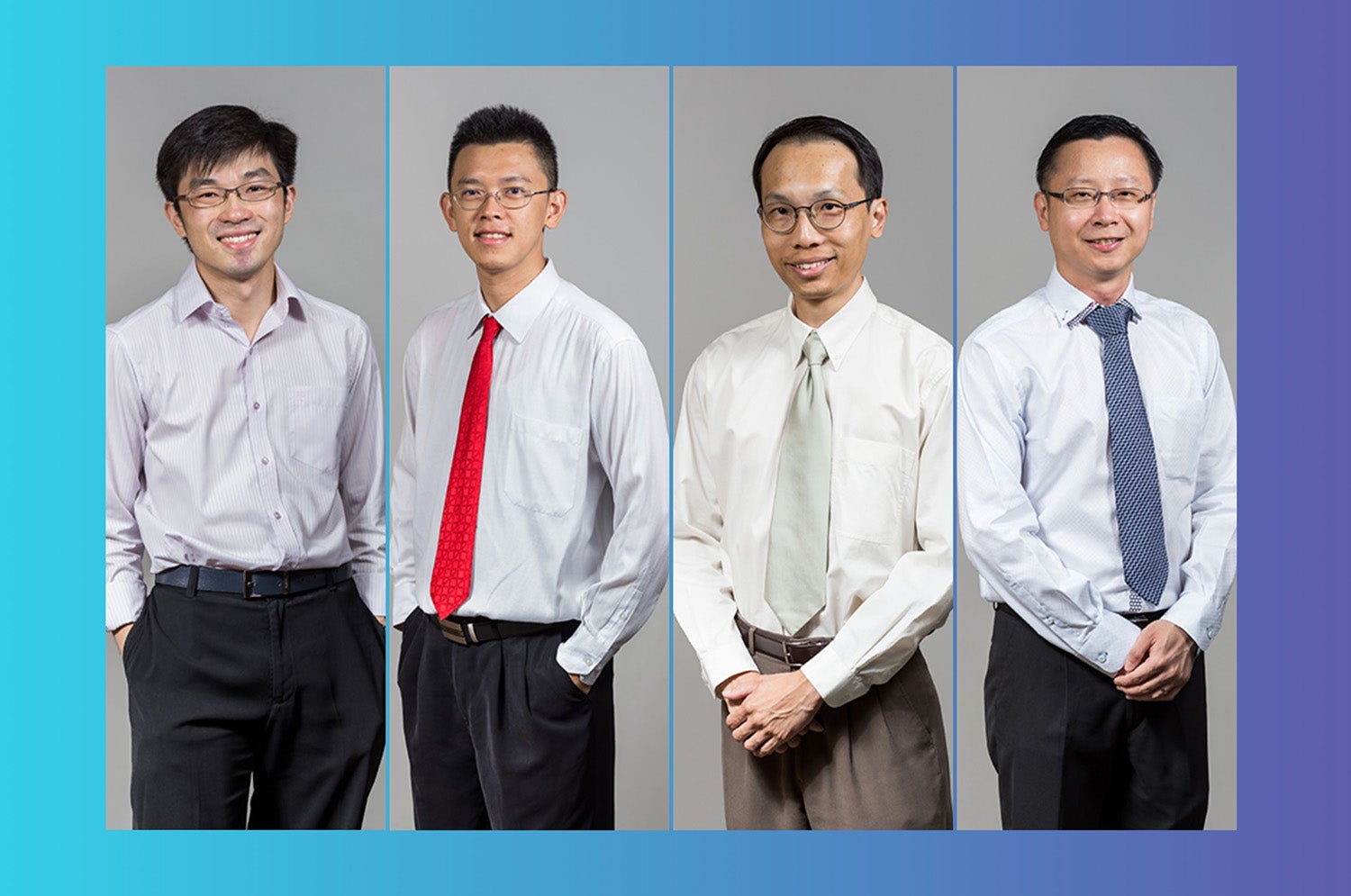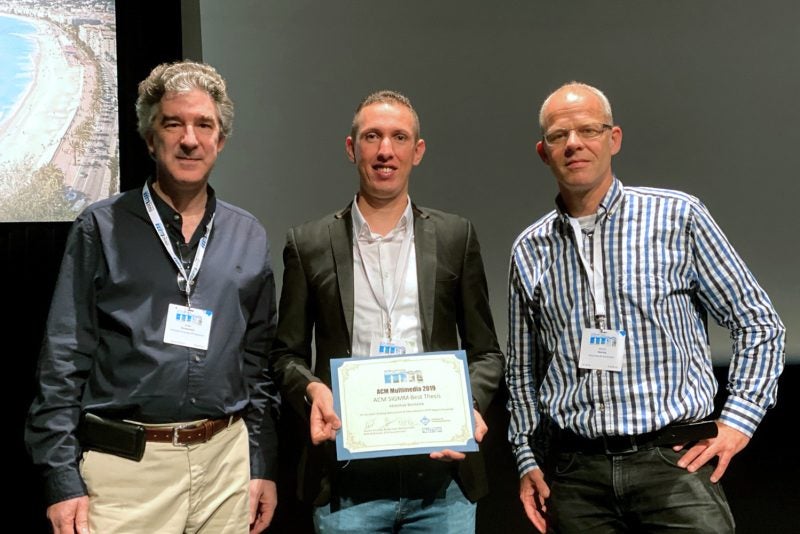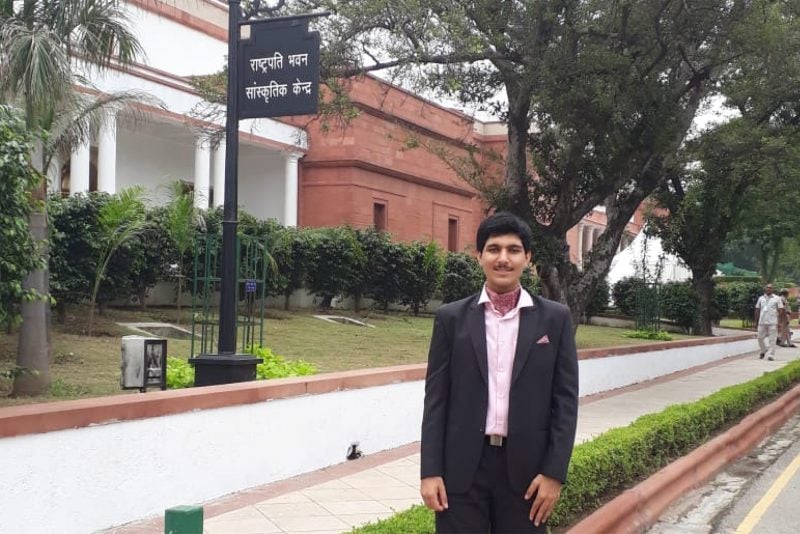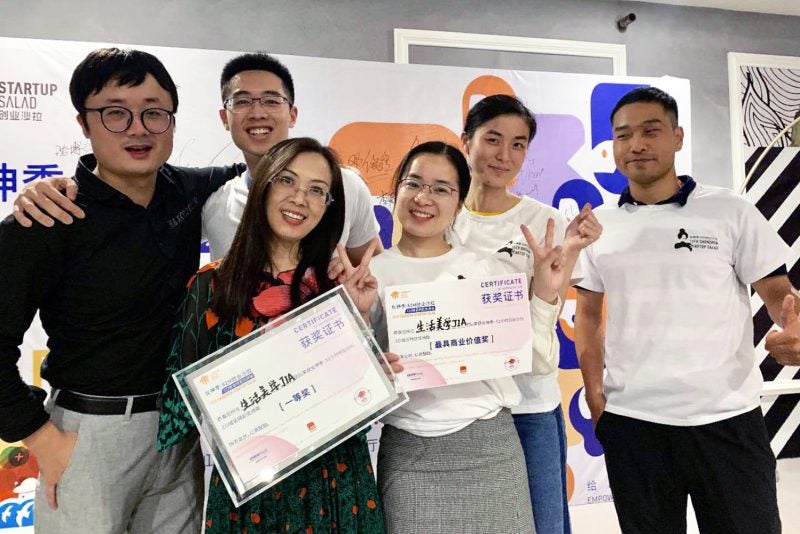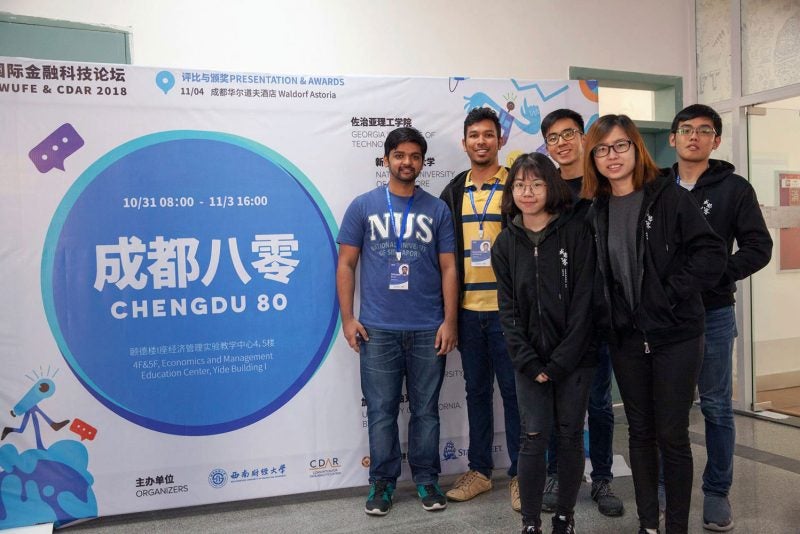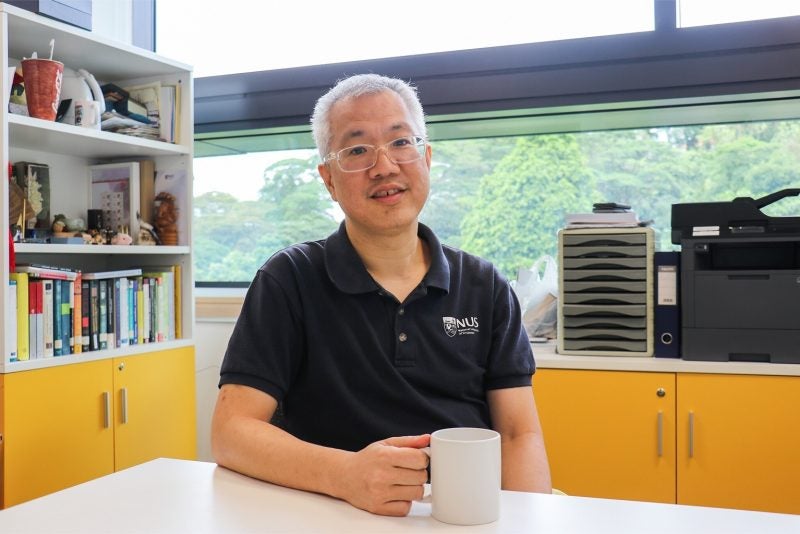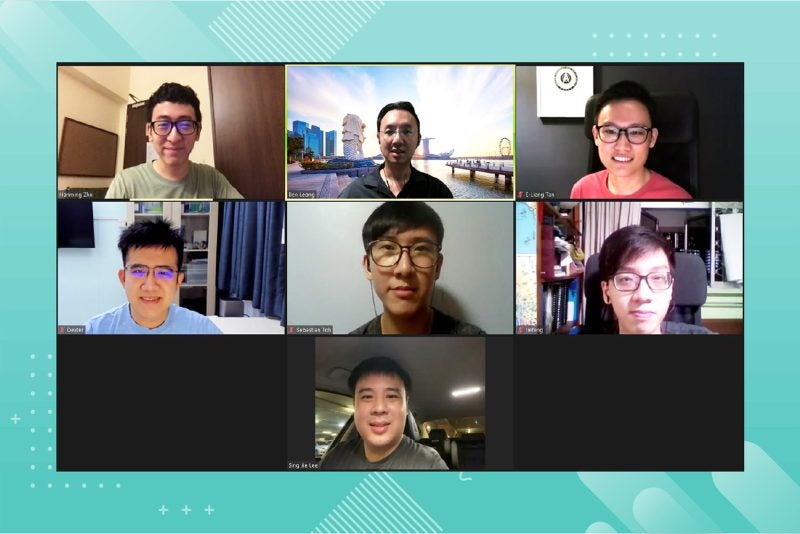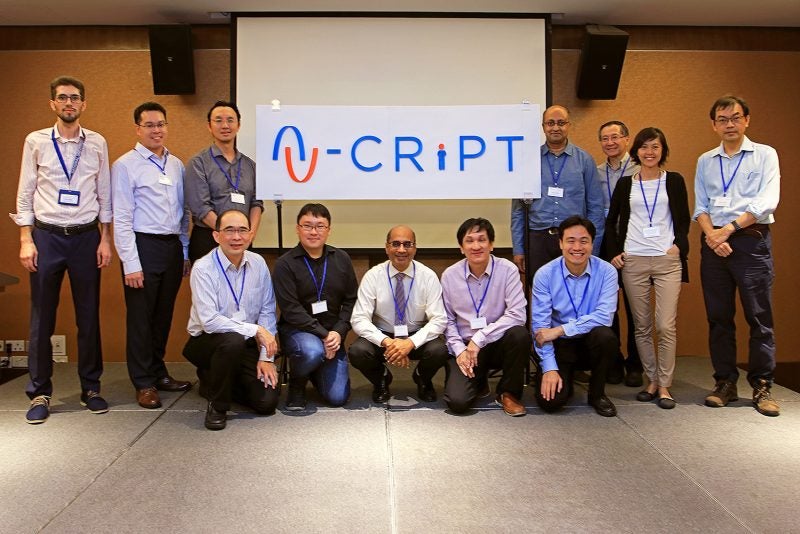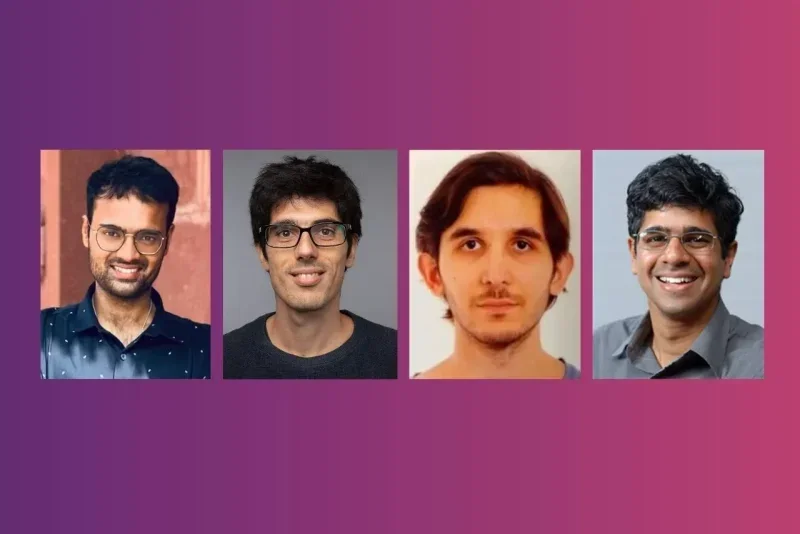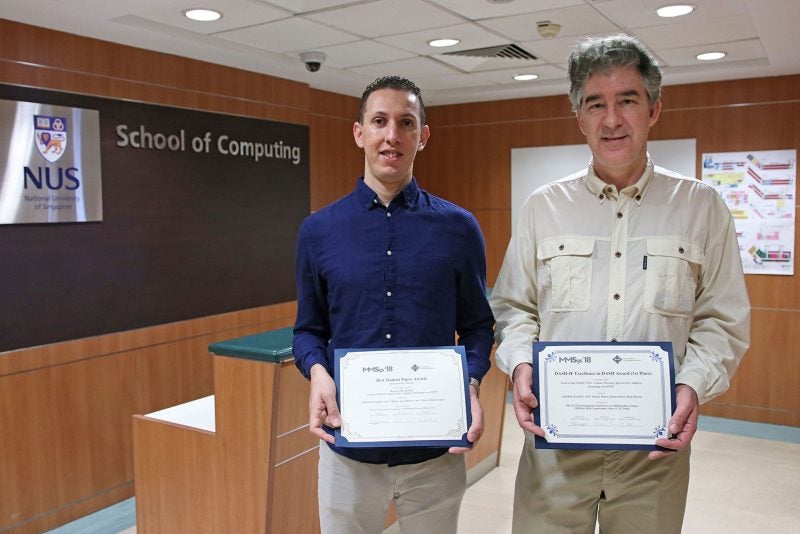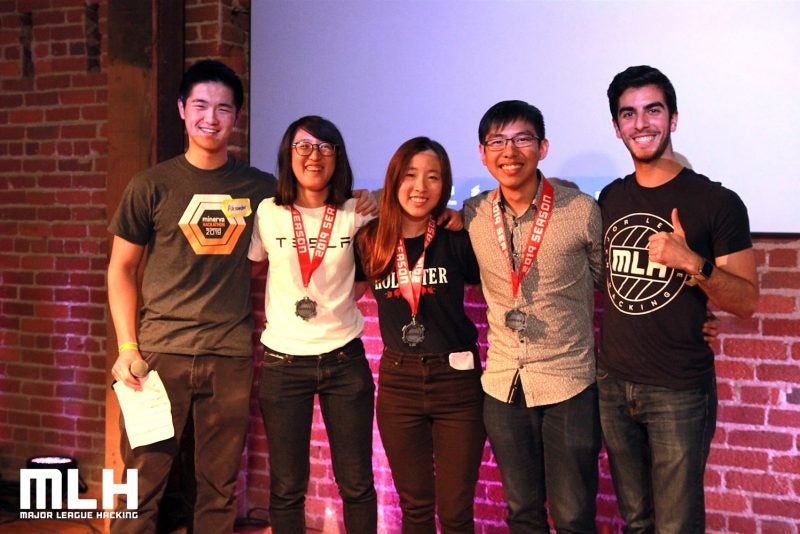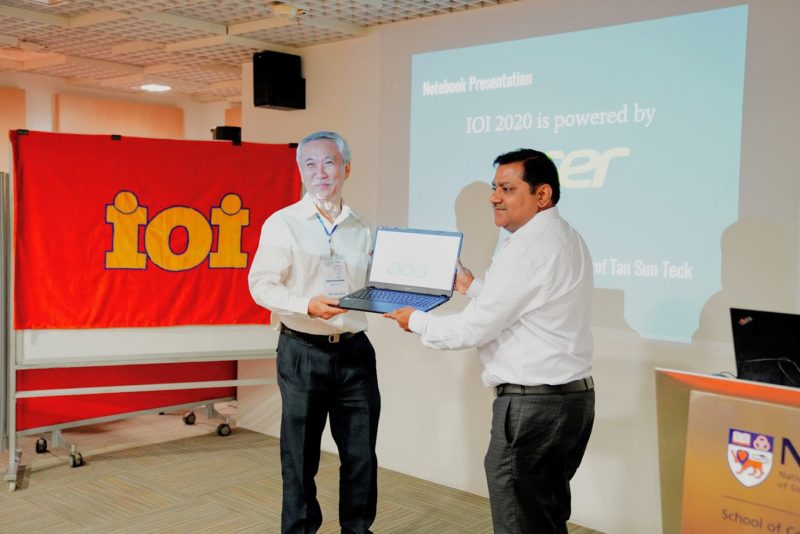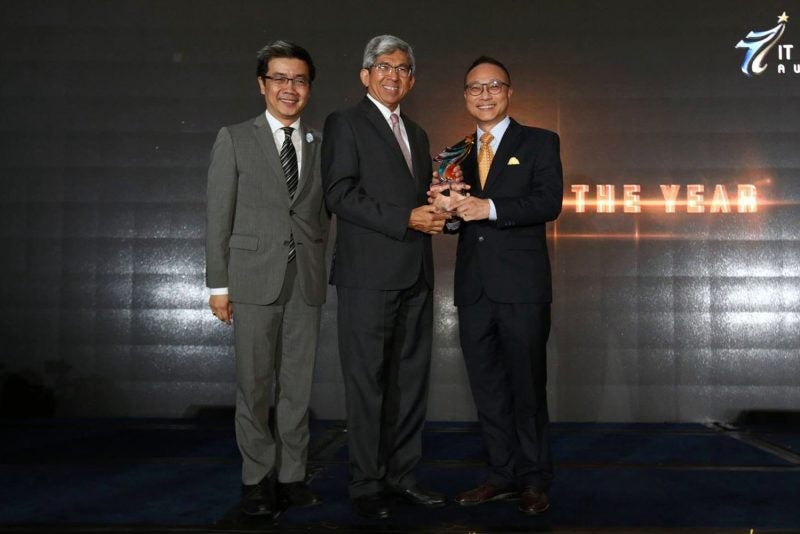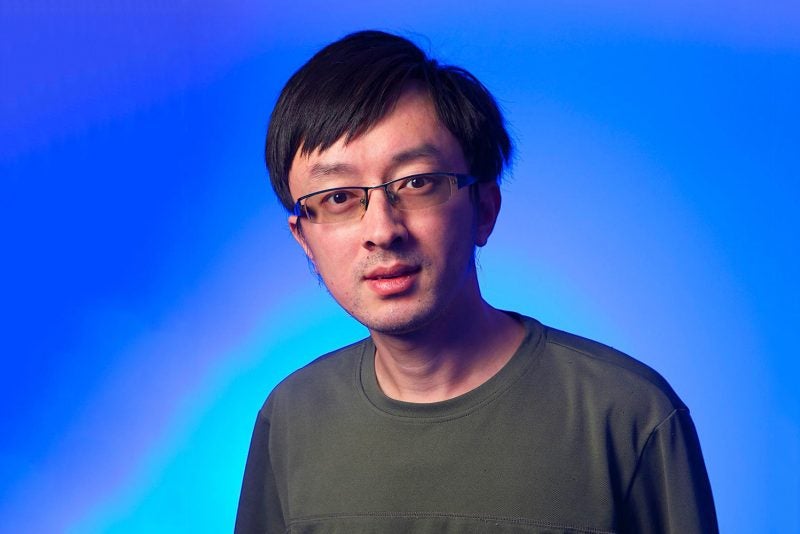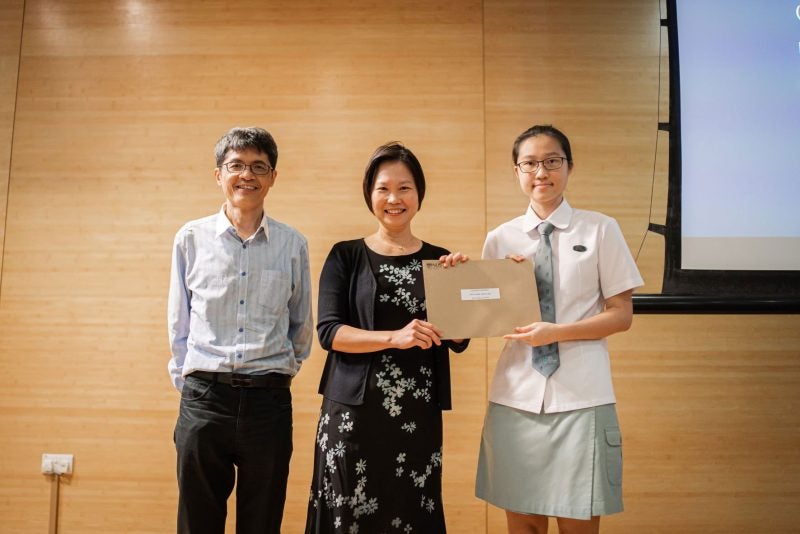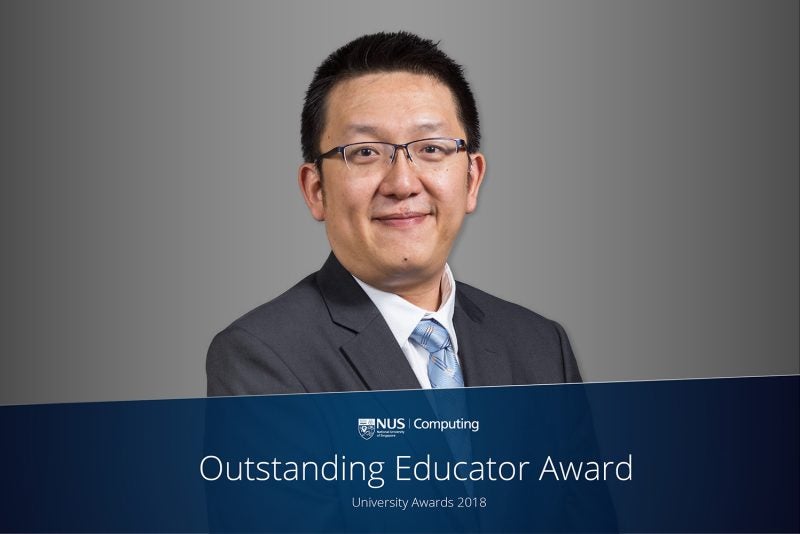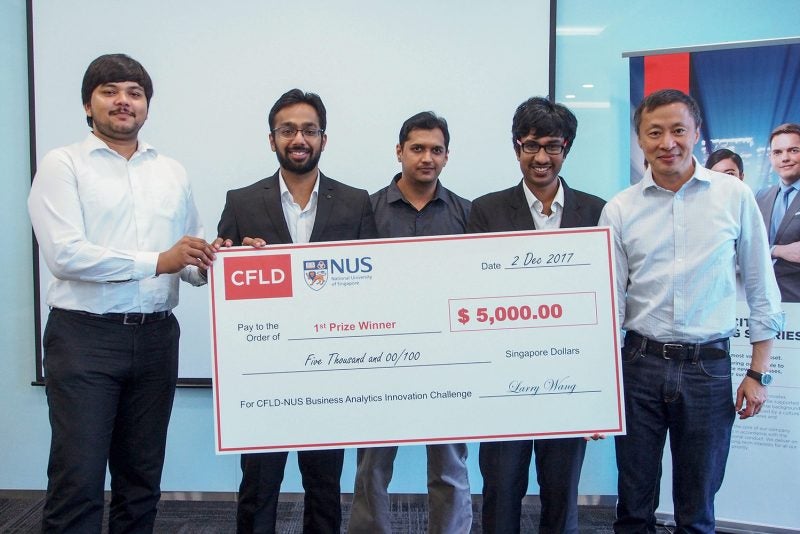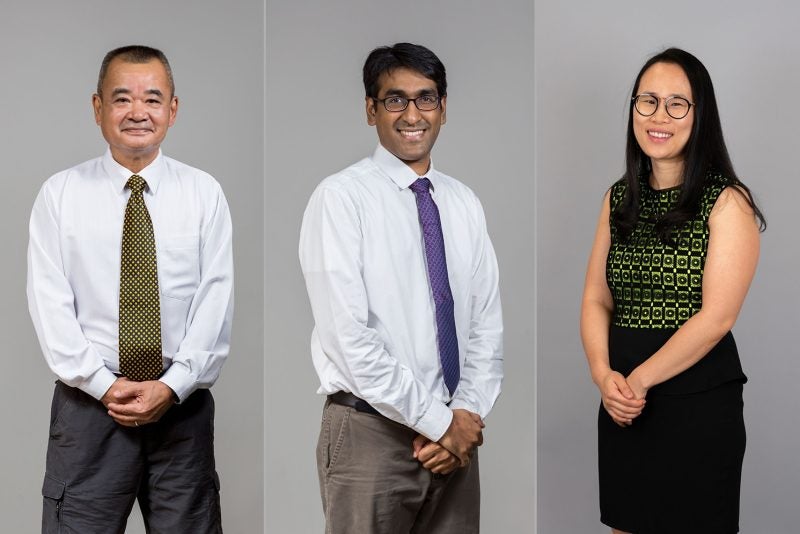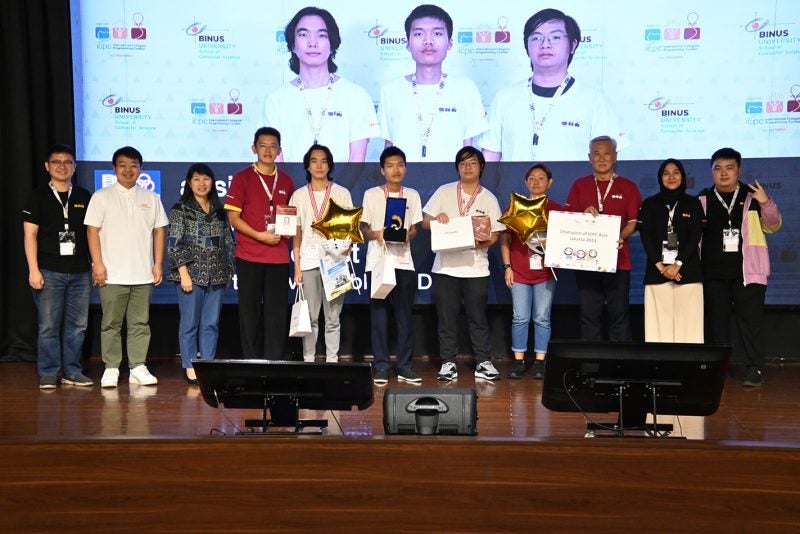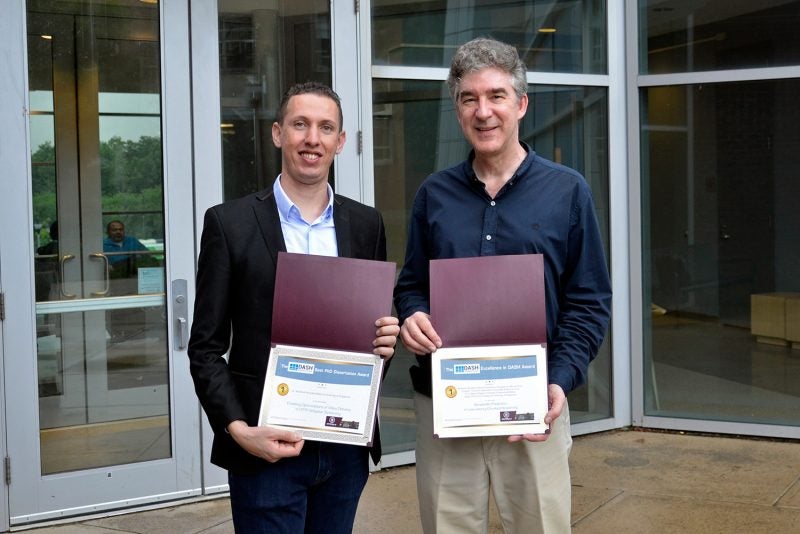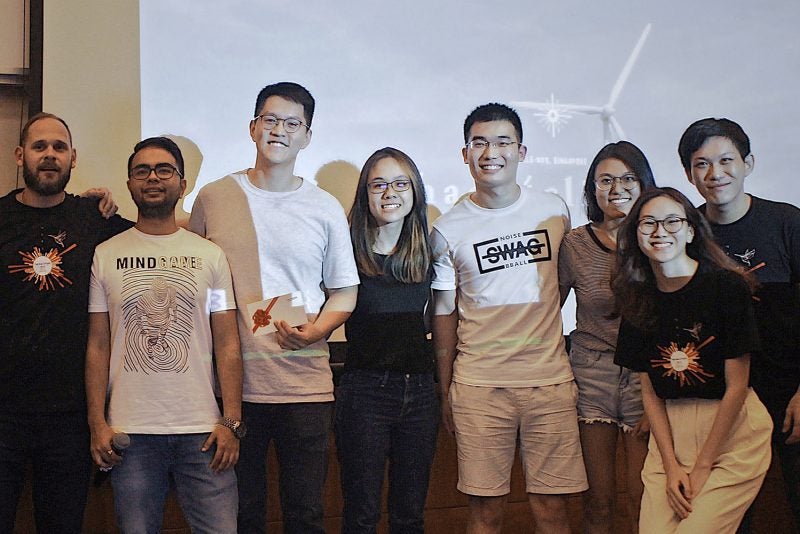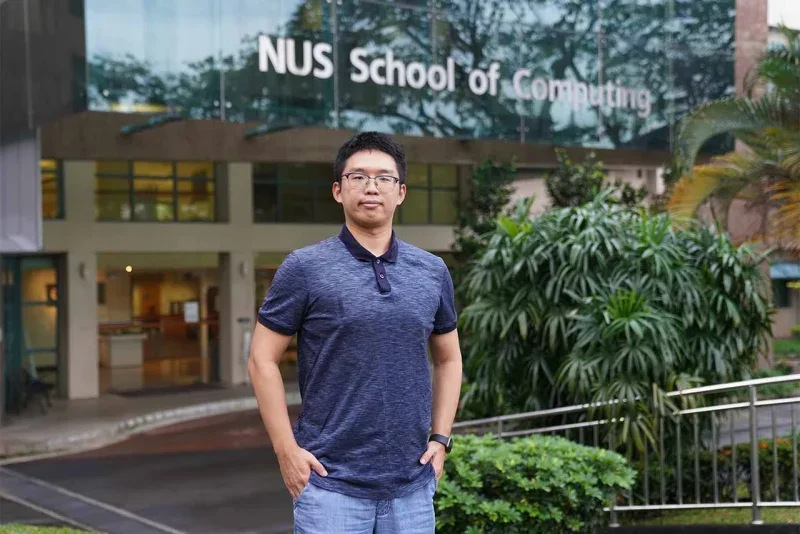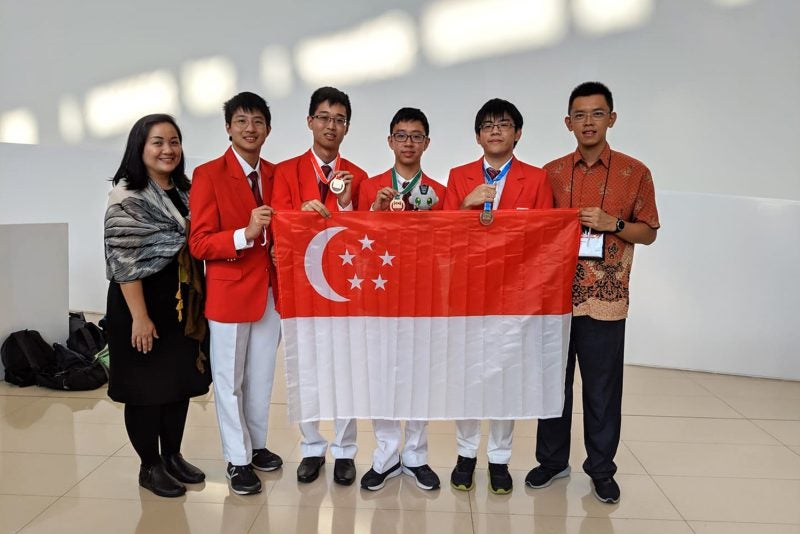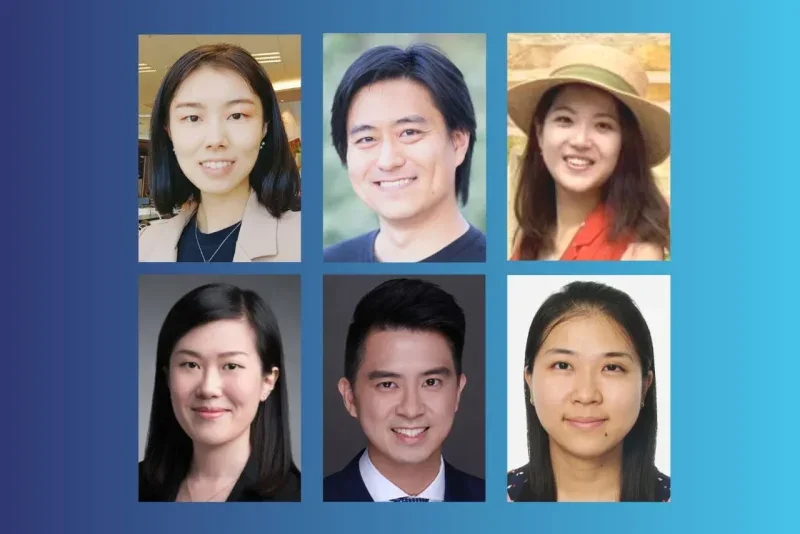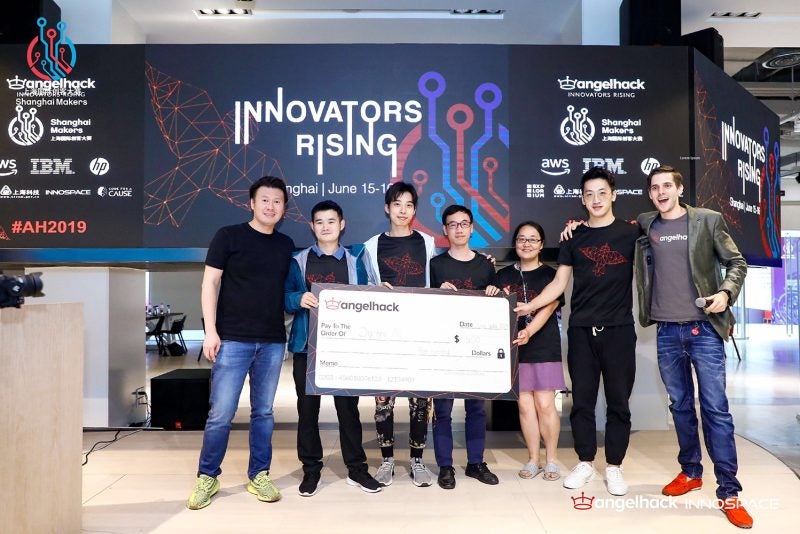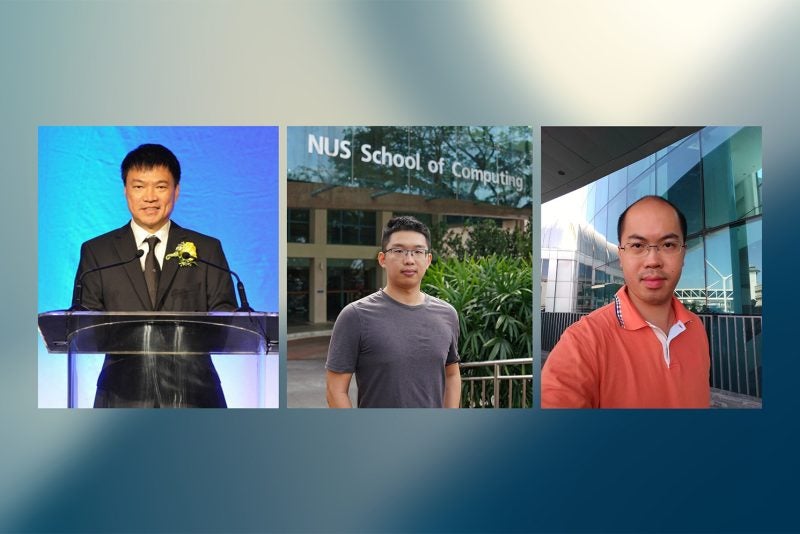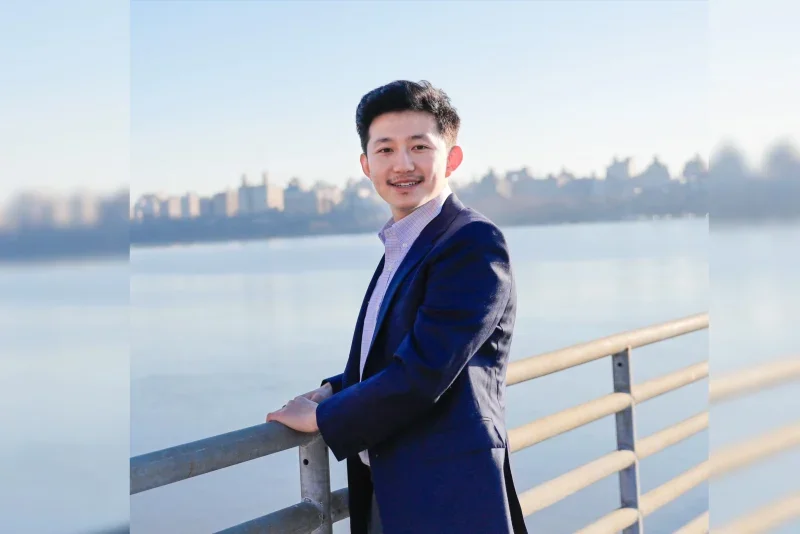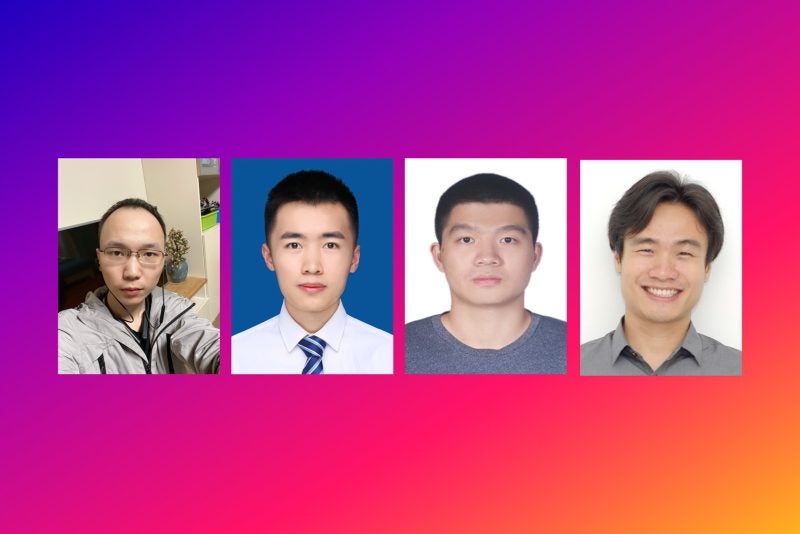27 July 2021 – NUS Computing faculty members Dr Lek Hsiang Hui, Dr Steven Halim, Dr Henry Chia, and Associate Professor Tan Wee Kek, were conferred the Annual Teaching Excellence Award 2020 (ATEA) for Academic Year (AY) 2018/2019 in early April this year.
The award was presented to them at the Annual Teaching Excellence Award (ATEA) Ceremony & Outstanding Educator Award (OEA) Public Lectures 2020 organised by the Centre for Development of Teaching and Learning.
The ceremony for AY 2018/2019 took place virtually this year as it was postponed last year, due to the COVID-19 pandemic.
The ATEA is awarded to faculty members whose teaching has positively contributed to students’ learning, and have displayed teaching excellence through new or existing pedagogies that advance the learning of students, colleagues, and the wider university community.
The award nominees are evaluated based on criteria such as displaying thoughtful design and innovative use of teaching approaches to enhance student learning and engagement, using effective feedback strategies to motivate and support students, creating an inclusive and supportive learning environment, and demonstrating leadership by enhancing the practice and adoption of such teaching strategies within the faculty, school or NUS community.
This is demonstrated through student feedback, students’ work, peer recognition and professional development.
Dr Lek Hsiang Hui
Dr Lek, a senior lecturer from the Department of Information Systems and Analytics, won the ATEA thrice: in AY 2015/2016, AY 2016/2017 and AY 2017/2018.
Dr Lek has been placed on the Honour Roll in 2019, a recognition given to faculty members who have won any of the teaching awards thrice, and as an acknowledgment of their sustained high performance in teaching.
“I am deeply honoured and greatly appreciative for the support of the many students and colleagues who have helped me reflect deeper on teaching. It is still a journey of exploration to discover how we as educators can create an impact when it comes to teaching and learning, but I am definitely appreciative of the recognition from the university for this effort,” said Dr Lek, who is also an NUS Computing alumnus.
In class, Dr Lek employed “a number of (teaching) strategies”, such as hands-on demonstration for students when learning about machine learning or programming.
“One guiding principle I adopt is to imagine standing in the students’ shoes and think about what each student might hope that their instructor is like,” he said. “I put myself in their shoes, try to understand the challenges and stress they are facing, and gently challenge them to be maximise their full potential along the way.”
Dr Lek hopes that his teaching will enable students to succeed beyond the classroom.
“I hope that students think deeper into what they have learned, and find ways to apply what they have learned to the real world. The real world is not just about doing well for assignments or exams, but more of how they can think critically to solve problems. That would differentiate them from other graduates. We can’t teach them everything and we definitely can’t teach them all the solutions to the problems, but I hope that students would come to a level to challenge what they have learned because they genuinely want to be better at what they are doing,” Dr Lek added.
Dr Steven Halim
Apart from Dr Lek, Dr Halim is also a third-time recipient of the ATEA, and has been listed in the Honour Roll for 2020.
“I am grateful to be among the few ATEA Honour Roll winners, such as Dr Lek,” said Dr Halim, a senior lecturer from the Department of Computer Science. “It is not easy to win this award once, and to win this thrice requires lots of personal sacrifice. My thoughts go to my wife and my three children, who would have gotten more of my personal time in recent years if I didn’t push for this.”
Dr Halim, who teaches data structures and algorithms, constantly looks at ways to improve and tailor his teaching to the needs of his students.
For instance, he developed VisuAlgo, an algorithm visualisation website to help students better understand how algorithms work. He decided to develop the website after noticing students struggling to keep up while copying the examples he had written on the whiteboard. He figured the website could also effectively demonstrate new examples that were not present in textbooks.
Apart from VisuAlgo, Dr Halim also recently adopted a flipped classroom strategy for some of his courses. Students are asked to read up on lecture contents or contents from prescribed topics prior to Dr Halim’s lessons. During his lessons, he discusses the concepts that students commonly have difficulties with, and conduct mini online quizzes for them.
The COVID-19 pandemic also brought with it some teaching challenges Dr Halim had to adapt to.
“We lose the ability to see facial reactions or body language of the students when we deliver our lessons, as most of them prefer to turn off their webcam and mute themselves. Hence we have to try to get live feedback via different ways such as online polls, screen annotations, et cetera,” he said.
Dr Halim also decided to experiment with an ‘Open Internet’ programming exam after the pandemic disrupted his plans to conduct traditional in-person examinations. He made use of various online tools to invigilate his students, and was also careful to ensure that the exam featured questions with answers that were not easily found on the Internet.
Dr Halim, who is looking forward to conducting more face-to-face classes in the coming semesters, also added that he hopes students will always leave his class feeling excited about learning algorithms.
Dr Henry Chia
Like the other awardees, this is not Dr Henry Chia’s first time receiving the ATEA. He was conferred his first ATEA in AY 2015/2016, and he received his second ATEA for AY 2018/2019 this year.
“The award is an affirmation that our teaching ideals are recognised and accepted by the school as well as the university. The first award in AY15/16 was significant in that it establishes the correct mindset as an educator, while this second award re-affirms my trust in students wanting to challenge themselves and give their best, provided we give them ample opportunities to so,” said Dr Chia, who is a senior lecturer from the Department of Computer Science and teaches Programming Methodology II.
“This recent award is a culmination of more than three years of experimentation in assessment methods, particularly for practical assessments in Programming Methodology modules.” He added.
Dr Chia explained that the Programming Methodology modules “were a constant bane to students” due to the way assessments were conducted. In the previous format of assessment, they were required to devise and write correct programs within a short period of time, and many students – who were programming novices – found this assessment style daunting.
To tackle this, Dr Chia came up with an alternative form of module assessment that focused on letting students achieve their learning outcomes through a set of incremental tasks.
Moreover, after the assessment proper, students are given an opportunity to polish and correct their solutions, with the final grade pegged on the degree of similarity between both sets of solutions. With the promise that students can ‘atone’ for their early mistakes, Dr Chia explained that students find the assessment fairer and definitely less stressful.
“Students can now focus more on getting the entire structure right, and have the opportunity to demonstrate the correctness of their solutions after the assessment,” he added.
“Moreover, the tables are turned: rather than us giving students the feedback on what is correct, students have to give us feedback on what makes their solution work. And rather than simply closing the feedback loop, we aim to tighten it.”
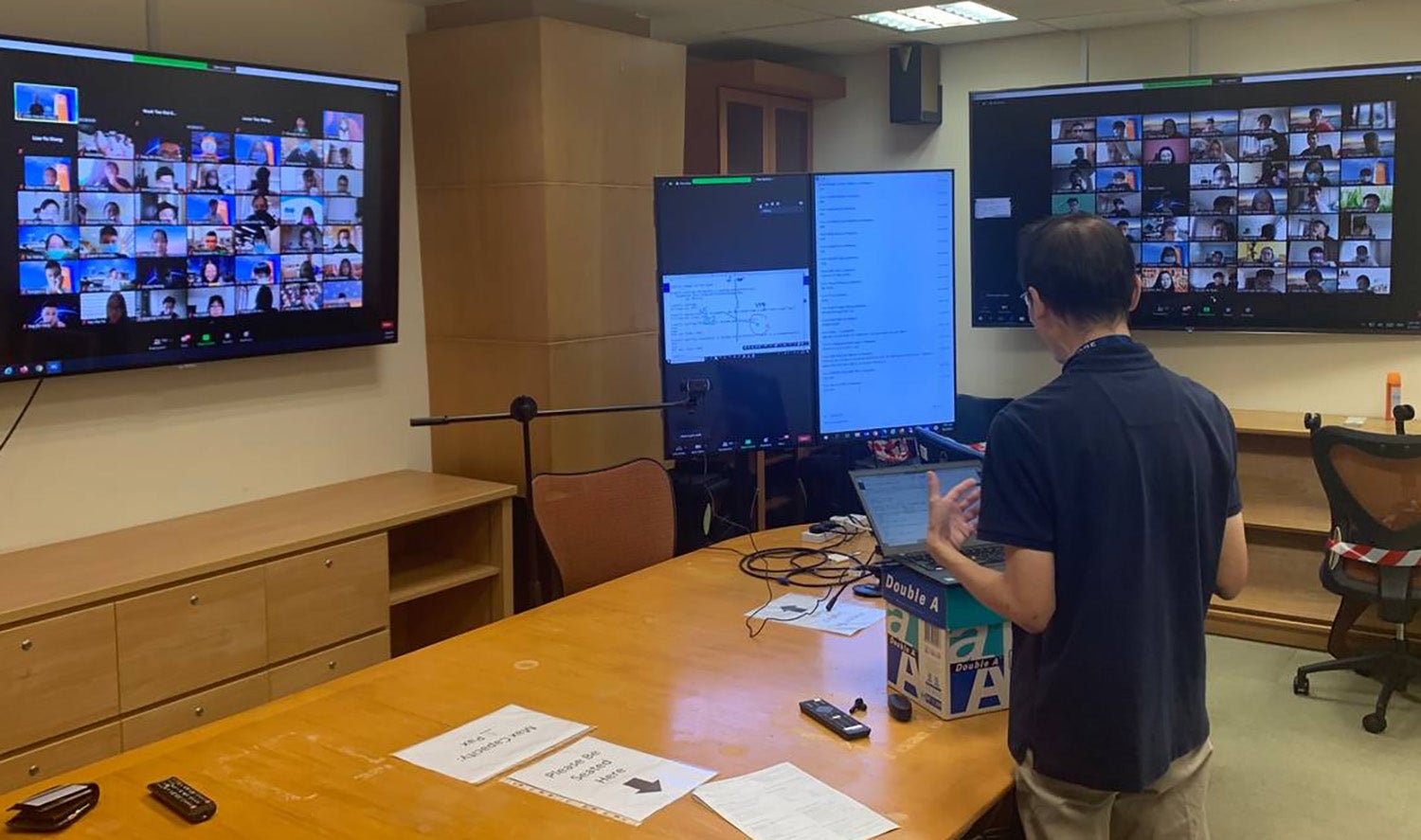
With the current COVID pandemic, he acknowledges that teaching challenges have “become seemingly insurmountable”.
He said: “While we certainly have the technology to “see” our students, how do we entice them to be seen?”
Dr Chia hopes that his students will treat learning as a two-way street. “I hope that students would not only see the passion in us, but also the compassion; that we understand their situation, and are ever ready to hear them out so that we can carve out an ideal learning environment together.”
Associate Professor Tan Wee Kek
A/P Tan Wee Kek, who is from the Department of Information Systems and Analytics, and is also the Assistant Dean of Student Life, won the ATEA consecutively for AY 2009 to AY 2012. He was also placed on the Honour Roll for AY 2012/2013.
He was awarded the ATEA again for AY 2018/2019.
A/P Tan is also one of the faculty advisors of the NUS Students’ Computing Club, a constituent club of the NUS Students’ Union, and the lead faculty advisor of the NUS BiZiT Society, a student special interest group on business and information technology.
He is also a Fellow of the prestigious NUS Teaching Academy.
View the full list of awardees for AY 2018/2019 here, and AY 2019/2020 here.

